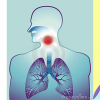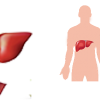Tag: Fever
-
Appendicitis
Appendicitis is the inflammation of the appendix. Appendix is a small, finger-shaped tubular structure attached to the large intestine located at the right side of lower abdomen. There is no known function of appendix in human body. When infected
-
Fever
Definition A fever or pyrexia is a rise in body temperature above normal and often indicates an illness. Average normal body temperature is 98.6o
-
Cough
Cough is our body’s protective response to the presence of irritants in the airway. It is a reflex action caused by the stimulation of the nerve endings in the respiratory tract by stimuli such as allergen,
-
Pneumonia
Pneumonia is an infection of the lungs caused by a variety of germs. These germs reach the air sacs (lowest part of airways) after inhalation, overcoming body's normal defense mechanism like nasal hairs, mucus and
-
Tuberculosis
Tuberculosis (TB) is a communicable disease caused by Mycobacterium tuberculosis. It can affect any organ in the body but lungs (Pulmonary TB) are the most common site of infection. Other common sites of infection are bones, lymph
-
Sore Throat
Sore throat (Pharyngitis & Tonsillitis) refers to pain, irritation or itchiness of the throat resulting from inflammation of the lining of throat and tonsils. It is common infection in children, but can affect
-
Systemic Lupus Erythematosus (Lupus)
Systemic lupus erythematosus (SLE) is a disease of immune system that can affect many organs in the body. Normally, the immune system produces proteins directed against infectious agents and protects us from
-
Malaria
Malaria is a febrile, mosquito-borne disease caused by parasitic protozoa, Plasmodium. Four different species of Plasmodium cause malaria. The parasite is transmitted by bite of female Anopheles mosquito. It occurs mostly in high temperature areas -
-
HIV/AIDS
Introduction HIV (Human Immunodeficiency Virus) is the virus that causes AIDS (Acquired Immunodeficiency Syndrome). Infection by HIV weakens your immune system. When the immune system becomes too weak to fight, organisms that
-
Diarrhea
Diarrhea is defined as increased frequency of defection (more than 3 per day) with excessive or abnormally loose consistency. Stool weights more than 200g/day are sometimes used to define diarrhoea but in the absence of abnormal consistency, weight
-
Hepatitis
Hepatitis is an inflammation of the liver. Liver is one of vital organs and largest internal solid organ. Liver has large blood supply and functions as a chemical factory removing many unwanted substances from the
-
Diphtheria
Diphtheria is an infectious disease caused by bacteria Corynebacterium diphtheriae. The infection affects the respiratory passage













